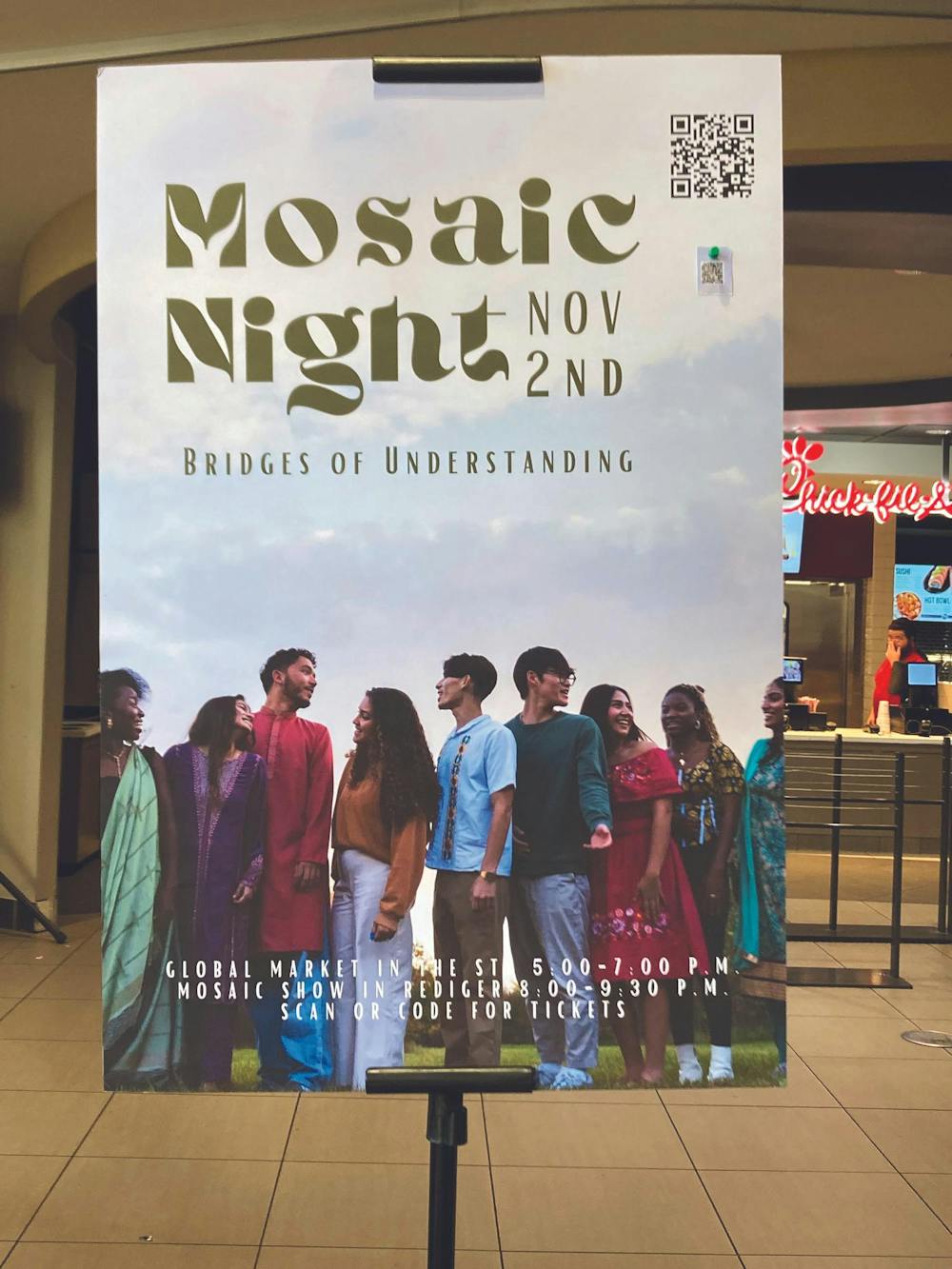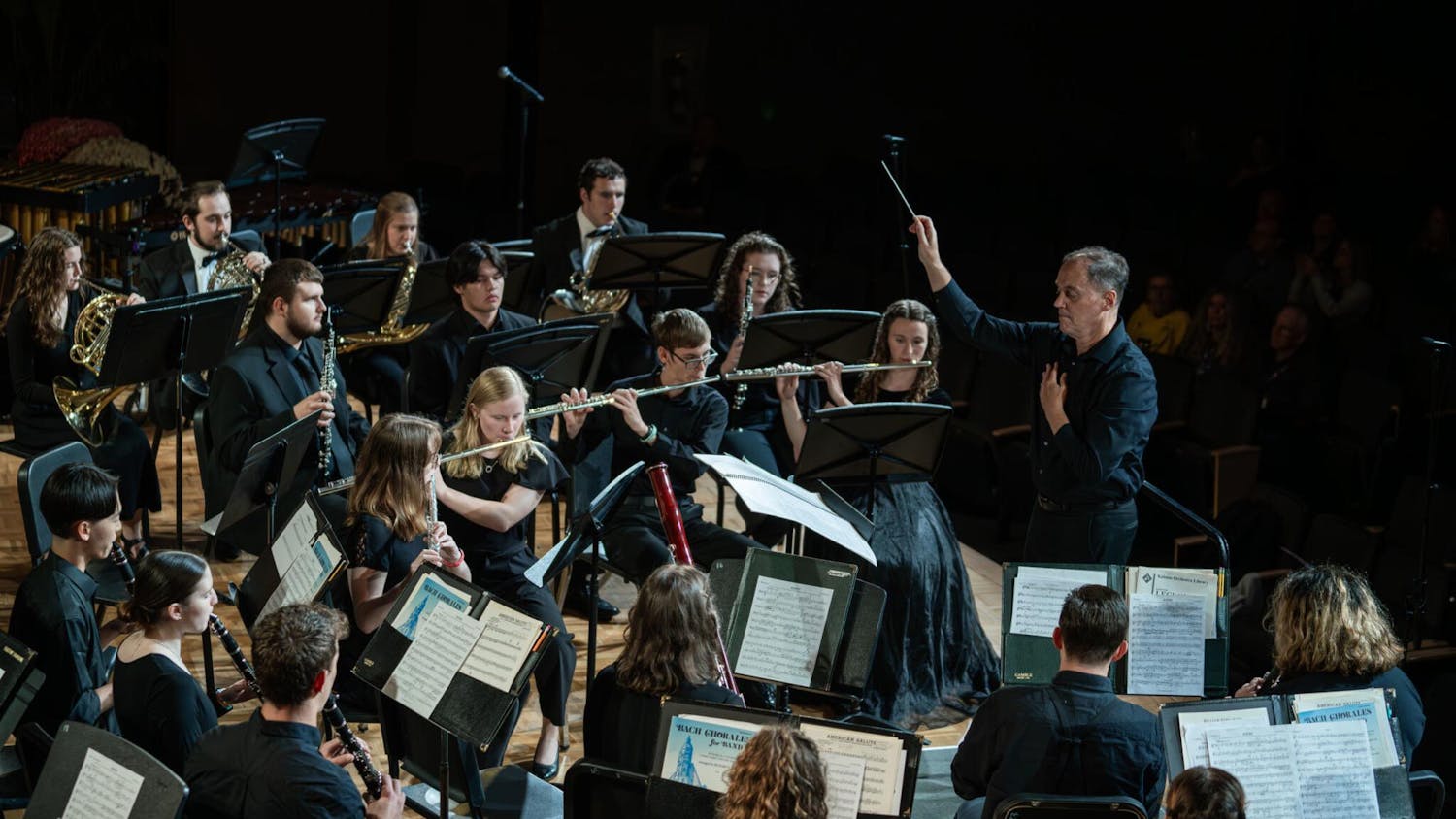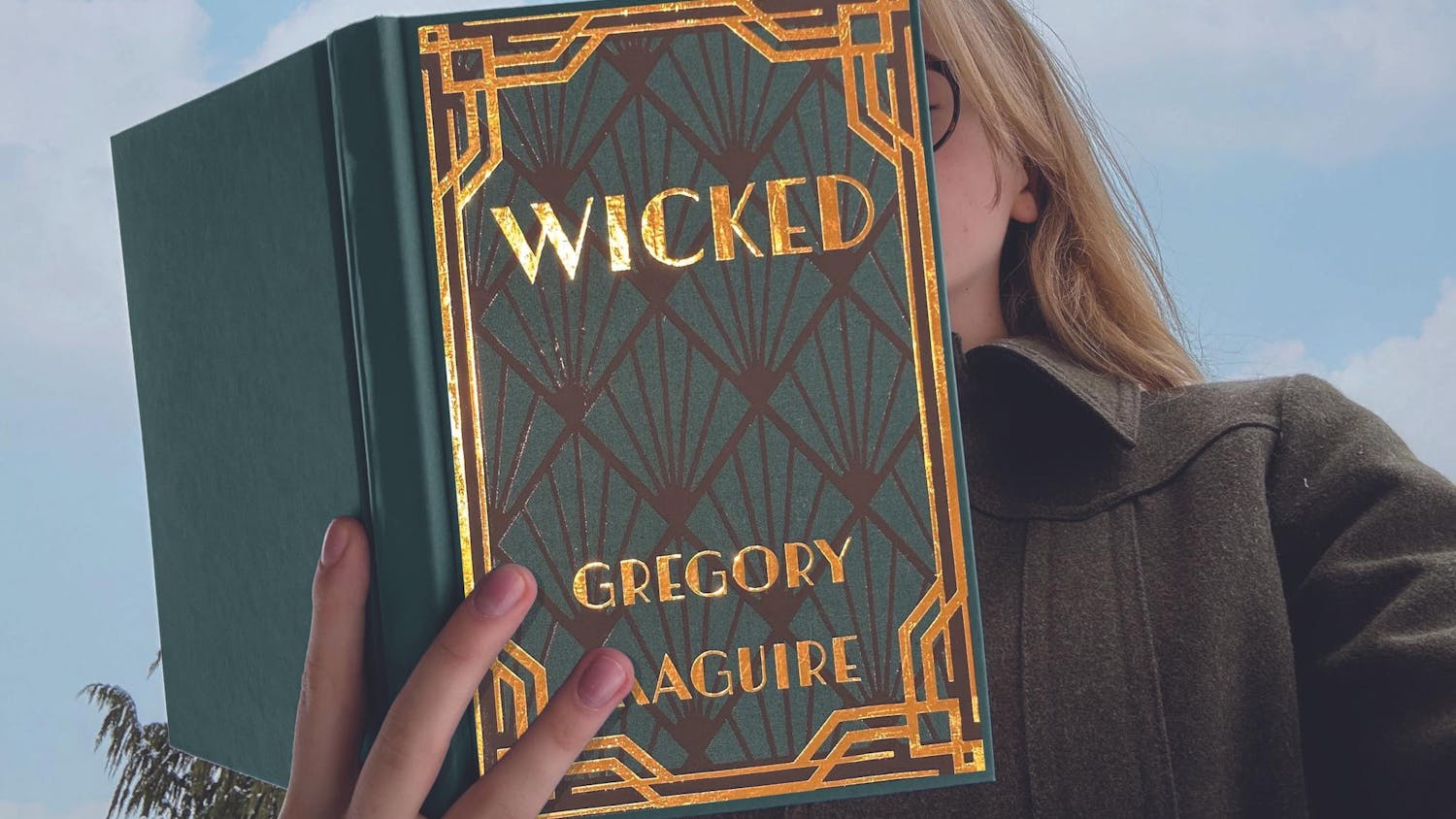Creativity and culture converged as students from diverse backgrounds took the stage, inviting the audience to catch a glimpse of their unique identities through artistic expressions.
Mosaic Night festivities opened at 5 p.m., Nov. 2, with the Global Market in the LaRita Boren Student Center. It was followed by the show at 8 p.m. in Rediger Auditorium.
This year, the theme was Bridges of Understanding, which focused on bridging the gap between cultures and promoting inclusivity, Angelica Felix, a junior music education major and co-president of the Multicultural Student Association (MSA), said.
During the Global Market, guests tasted dumplings, tamales, borscht, fajitas, shawarma, Mexican street corn and more as students brought homemade dishes from their cultures to share.
Following it was the Mosaic Night show, a series of musical and dance acts that celebrated and showed off different cultures represented within Taylor’s student body, Felix said.
Among these performers was Stephany Lee, a sophomore marketing major and co-president of the Asian Students Intercultural Association (ASIA), who sang with the Korean Choir.
“Mosaic Night is a performance where all the multicultural students come up to the stage and share their stories,” Lee said. “Whether it's choir music or dance performance, they choose some performances where they can show their backgrounds, culture and stories.”
Through solo and group dances, poetry, choirs, original songs and a fashion show, students, faculty and guests were allowed glimpses of cultures, traditions and stories from around the world.
“We got together yesterday to just talk about... every performance and talk about who we thought really resonated with us,” Felix said. “(We looked for acts) who we thought showcased what we wanted to express best (and) who had that spark in them.”
One of these acts was brought by the Korean Choir. This was their second year performing as a choir at Mosaic Night, Lee said. They decided to perform a song about their history.
They performed a traditional Korean song about how they gained their independence as a nation. The song honored the Koreans who fought for their freedom, Lee, who performed in the choir said. It told the story of how they claimed their identity as Koreans.
“I personally really like the song that I'm doing,” Lee said. “It means a lot to me, and I'm pretty sure it means a lot to a lot of Korean students in general, because it's a very thick Korean song, because it's about our history. But being able to share our history in the States, it means a lot for us.”
The Black Student Union also brought a piece of their history to life. They performed an act portraying a traditional African household marriage story.
The act told the Ugandan tale of Kintu, the only man on earth, meeting Nambi, a daughter of the sky king, when she and her sister slid down a rainbow to Uganda. Moved by his loneliness, Nambi promises to marry him. Her father hesitates to give his blessing, insisting that Kintu must prove himself by dancing. After a lively dance number, the king agrees. The act finished with a boisterous dance of celebration.
Lee was able to share a piece of her own story through a song performed by her friend, Minju Kim. Kim performed a Korean worship song called “Jochebed’s Song” by Pyeong-An Yeom. The song held a deep meaning for Lee and her mother.
“When I was in eighth grade, I went to study abroad at a Chinese boarding school,” Lee said. “And at the time I didn’t fully understand how difficult (that time) was for my parents. And later my mom shared that this song became her prayer for my journey.”
The song portrayed the story of Moses’s mother, who placed him in a basket in the river, trusting God would protect her son. It reflected the idea that people’s loved ones belong to God first, Lee said.
This year’s Mosaic Night was unique in that it celebrated the work of Mirabel Magallanes, the former Director of Student Leadership and Intercultural Programs. She served for many years in the Office of Intercultural Programs (OIP) before retiring, Lee said. At the end of the show, she was invited up to the stage and prayed over as she embarked on her next phase of life.
When the night ended, conversations about the food and performance could be heard all around. These conversations were one of the favorite parts of Mosaic Night for sophomore global studies major and OIP scholars liaison, Maliya Castillo.
“...Diversity doesn't have to just (be) confined to race and ethnicity, but diversity too is just like how the Lord made us all so differently,” Castillo said. “So I would say that's my favorite thing about Mosaic Night and the conversations that happen after it.”





